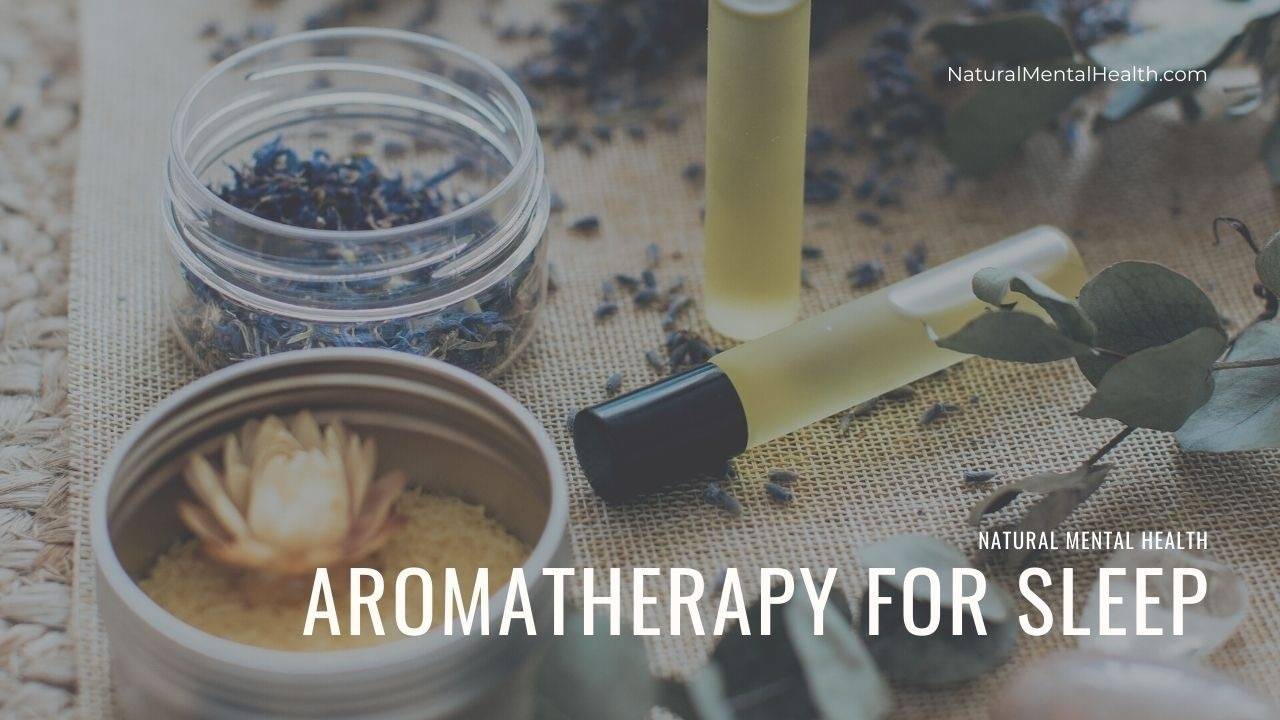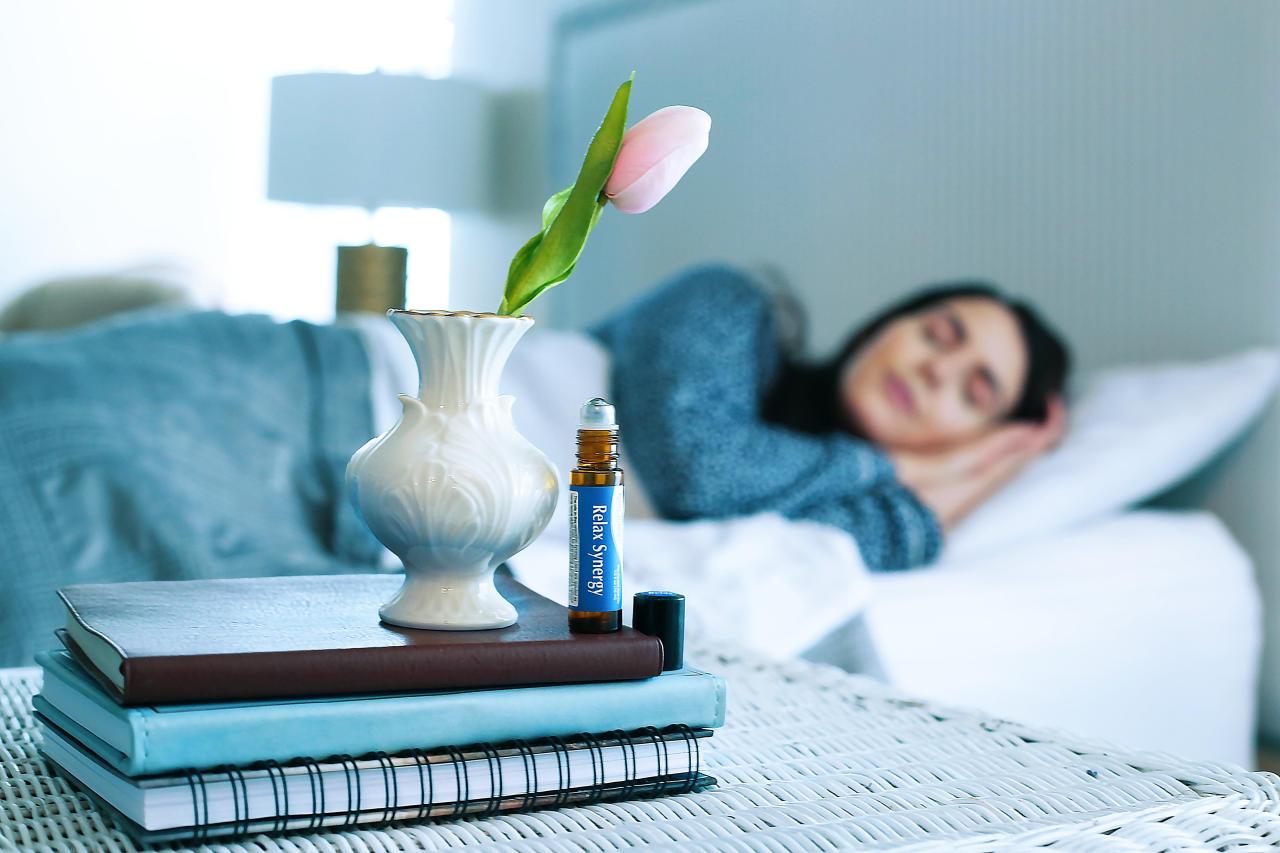Step into the realm of sleep aromatherapy, where fragrant aromas dance with the promise of restful nights. Discover the power of essential oils to soothe your senses, lull you into a deep slumber, and awaken you feeling refreshed and revitalized.
Join us as we explore the enchanting world of sleep aromatherapy, uncovering its benefits, essential oil blends, and practical methods for incorporating it into your bedtime routine. Prepare to unlock the secrets of a peaceful night’s sleep, guided by the calming embrace of nature’s fragrant treasures.
Benefits of Sleep Aromatherapy

Sleep aromatherapy offers numerous benefits for promoting relaxation and improving sleep quality. Essential oils used in sleep aromatherapy possess calming and sedative properties that help reduce stress, anxiety, and promote relaxation, ultimately leading to a more restful night’s sleep.
Essential Oils for Sleep Aromatherapy
Various essential oils have been traditionally used in sleep aromatherapy, each with unique properties that contribute to relaxation and sleep:
- Lavender:Known for its calming and relaxing effects, lavender oil helps reduce stress and anxiety, promoting a sense of tranquility.
- Chamomile:This gentle oil possesses sedative and anti-anxiety properties, helping to soothe the mind and body, promoting relaxation and sleep.
- Bergamot:With its uplifting and calming aroma, bergamot oil helps reduce stress and anxiety, creating a more relaxed and conducive environment for sleep.
Essential Oil Blends for Sleep
To enhance your sleep experience, consider incorporating essential oil blends into your nighttime routine. These blends are carefully crafted to combine the therapeutic properties of different essential oils, creating a synergistic effect that promotes relaxation and restful sleep.
When selecting an essential oil blend for sleep, look for ingredients that have calming, sedative, or stress-reducing properties. Some popular choices include lavender, chamomile, bergamot, ylang-ylang, and vetiver.
Popular Essential Oil Blends for Sleep
- Lavender and Chamomile:A classic combination that promotes relaxation and reduces anxiety. Lavender’s calming scent helps to soothe the mind and body, while chamomile’s anti-inflammatory properties reduce tension and promote tranquility.
- Bergamot and Ylang-Ylang:This blend combines the uplifting aroma of bergamot with the floral sweetness of ylang-ylang. Bergamot has mood-boosting properties that can help alleviate stress, while ylang-ylang promotes relaxation and reduces anxiety.
- Vetiver and Cedarwood:A grounding and earthy blend that helps to calm the nervous system and promote deep sleep. Vetiver’s rich, woody scent has sedative properties, while cedarwood’s calming aroma helps to reduce anxiety and promote a sense of peace.
To use these blends, add a few drops to a diffuser or humidifier before bed. You can also dilute them with a carrier oil, such as jojoba or almond oil, and apply them topically to the temples, wrists, or feet.
Methods of Sleep Aromatherapy

Incorporating sleep aromatherapy into your bedtime routine can be done through various methods, each with its unique benefits and considerations.
Diffusers
- Diffusers disperse essential oils into the air, creating an aromatic environment that promotes relaxation and sleep.
- Use a diffuser specifically designed for essential oils and follow the manufacturer’s instructions for dosage and usage.
- Recommended dosage: 3-5 drops of essential oil per 100ml of water in the diffuser.
- Precautions: Avoid using diffusers for extended periods (1-2 hours maximum) and ensure adequate ventilation.
Sprays
- Aromatherapy sprays are pre-mixed blends of essential oils diluted in a carrier liquid, such as water or alcohol.
- Spray a small amount of the blend onto your pillow, sheets, or the air around your bed.
- Recommended dosage: Follow the instructions on the spray bottle.
- Precautions: Avoid spraying directly onto your face or eyes. Test the spray on a small area of skin before using it more widely.
Topical Applications
- Essential oils can be applied topically to the skin, diluted in a carrier oil, such as coconut or jojoba oil.
- Apply a few drops of the diluted oil to your temples, wrists, or the soles of your feet.
- Recommended dosage: 1-2 drops of essential oil per 5ml of carrier oil.
- Precautions: Always dilute essential oils before applying them to the skin. Avoid using essential oils on broken or irritated skin.
DIY Sleep Aromatherapy Recipes
Crafting your own sleep aromatherapy blends allows you to customize the experience to your specific needs and preferences. Here are a few simple recipes to get you started:
Essential Oil Blends for Sleep
| Essential Oil Blend | Carrier Oil (if needed) | Method of Use |
|---|---|---|
| Lavender (5 drops), Bergamot (3 drops), Chamomile (2 drops) | Jojoba oil (10 ml) | Add to a diffuser or apply topically to the soles of your feet |
| Vetiver (4 drops), Sandalwood (3 drops), Frankincense (2 drops) | Grapeseed oil (10 ml) | Massage into the temples or apply to a warm bath |
| Ylang-ylang (3 drops), Cedarwood (2 drops), Marjoram (1 drop) | Sweet almond oil (10 ml) | Inhale directly from the bottle or add to a diffuser |
Safety Considerations

Sleep aromatherapy generally poses low risks when used properly, but certain safety considerations should be taken into account to ensure a safe and beneficial experience.
Allergies and Skin Sensitivity
Some essential oils can trigger allergic reactions in certain individuals. It’s essential to conduct a patch test before using any new oil on the skin. Dilute a small amount of the oil with a carrier oil and apply it to a small area of skin on the inner forearm.
Observe the area for any signs of redness, itching, or irritation. If any adverse reaction occurs, discontinue use and consult a healthcare professional.
Interactions with Medications
Some essential oils may interact with certain medications, such as blood thinners or sedatives. It’s crucial to consult a healthcare professional before using essential oils if you are taking any medications. They can assess potential interactions and provide guidance on safe use.
Proper Dilution and Use
Essential oils are highly concentrated and should always be diluted before applying them to the skin. Using undiluted essential oils can cause skin irritation or burns. Common carrier oils used for dilution include coconut oil, jojoba oil, and sweet almond oil.
The recommended dilution ratio for topical use is typically 2-3 drops of essential oil per 1 teaspoon of carrier oil.
Excessive Use
While sleep aromatherapy can be beneficial, excessive use of essential oils can be harmful. Overuse can lead to skin irritation, headaches, and other adverse effects. It’s essential to follow the recommended guidelines for usage and to avoid prolonged or excessive exposure to essential oils.
Final Review
As you drift off to sleep enveloped in the soothing scents of sleep aromatherapy, remember the power you hold to create a sanctuary of tranquility. With the knowledge gained from this guide, you are now equipped to harness the therapeutic benefits of essential oils and transform your bedtime routine into a journey of relaxation and rejuvenation.
Embrace the magic of sleep aromatherapy and experience the transformative power of a restful night’s sleep.